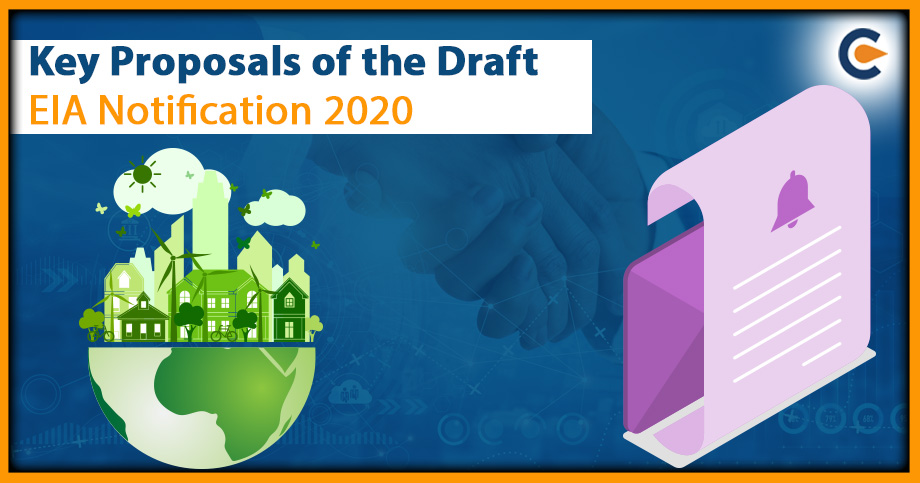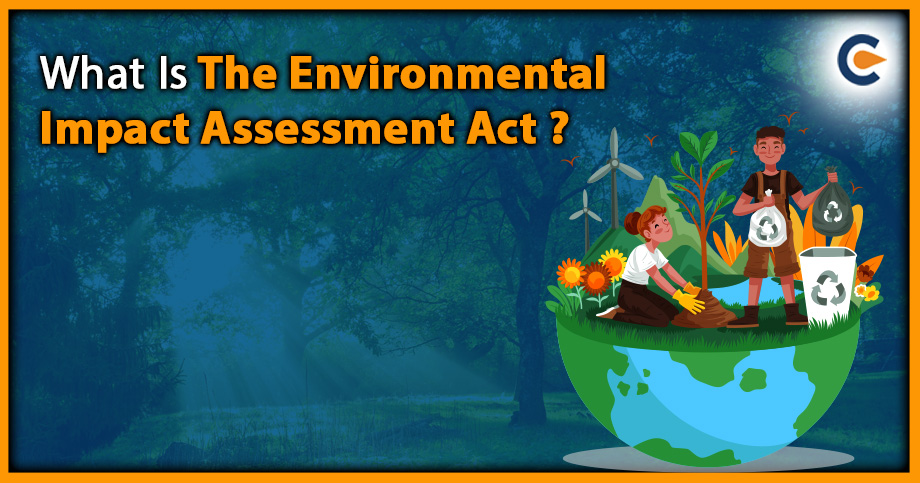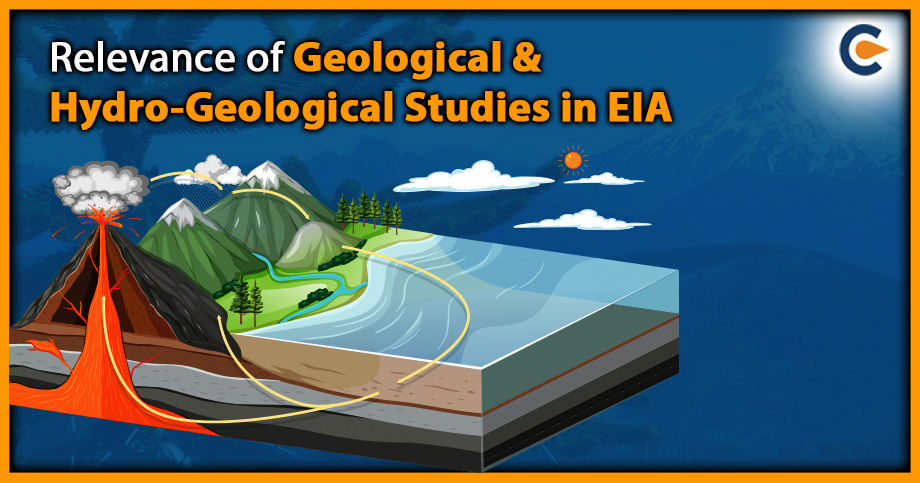The Draft Environmental Impact Assessment (EIA) Notification 2020 is a proposed update to India’s existing EIA Notification 2006. The Notification 2020 was published by the Ministry of Environment, Forest and Climate Change (MoEF&CC) in July 2020 and came into effect on September 14, 2020. The updated EIA Notification 2020 contains several fundamental changes to strengthen the EIA process and ensure environmental protection while promoting economic growth and development. The proposed changes in the draft notification aim to strengthen the EIA process and ensure environmental protection while promoting economic growth and development. Some of the fundamental changes proposed in the Draft EIA Notification 2020 include:
- Post-Facto Clearance/Approval: The draft notification allows for post-facto clearance for projects that have started construction or operations without obtaining the required environmental clearance. This provision has been controversial, with critics arguing that it undermines the purpose of the EIA process and could lead to further environmental degradation. On the contrary, the government aims to accelerate economic growth by speeding up process of clearance for crucial projects.
- Reduction in Public Consultation: The Draft EIA Notification 2020 reduces the scope of public consultation for some Category B projects and removes the requirement for public hearings for specific projects. Time span for public to give response has been proposed to be reduced from 30 to 20 days. Critics, however, argue that this reduces transparency and limits public participation in the decision-making process.
- Exemptions or Bypassing of EIA Process: The draft notification proposes several exemptions for specific projects, including those related to national defence and security, and those deemed “strategic” by the government. Critics argue that these exemptions could damage and weaken environmental protections. Projects with a size of 150,000 sq mt will also be exempted from the EIA (earlier 20.000 sq mt) process has also been proposed in the draft notification.
- Compliance and Monitoring: The draft notification proposes stricter compliance and monitoring requirements for project proponents, including submitting annual reports as compared to half-yearly reports submission as per the 2006 notification and increasing penalties for non-compliance.
Overall, the Draft EIA Notification 2020 has been controversial, with critics arguing that it weakens environmental protections and promotes economic growth at the expense of the environment. Supporters argue that the proposed changes are necessary to streamline the EIA process and promote economic development while ensuring environmental protection. The MoEF&CC[1] is reviewing the feedback received on the draft notification before finalizing the updated EIA Notification.
Environmental Impact Assessment (EIA)
Environmental Impact Assessment (EIA) is a process used to evaluate the potential environmental impacts of a proposed development project. An EIA aims to identify, predict and assess the potential environmental impacts of a proposed project or activity and propose measures to mitigate or reduce any negative impacts. The process involves collecting and analyzing data on the project’s potential environmental impacts, including air, water, soil, flora, fauna, and human health, and considering alternatives to the proposed project.
EIAs are typically required by law or regulation before a government agency can approve or permit a project. The assessment is conducted by an independent third-party consultant hired by the project proponent. The findings and recommendations are presented in a report that is made available for public comment.
The EIA process is an essential tool for sustainable development as it allows decision-makers to balance a proposed project’s economic, social, and environmental aspects and ensure that the project is designed and implemented to minimise harm to the environment and maximise benefits for local communities.
Fundamental Changes in the Environment Impact Assessment Notification 2020
Here are some of the fundamental changes introduced in the EIA Notification 2020:
- Timeline for application submission: The EIA Notification 2020 sets a timeline of 60 days for the submission of a complete application for environmental clearance. This timeline can be extended by 30 days, after which the application will be rejected.
- Post-Facto Clearance: The Notification 2020 only provides for automatic post-facto clearance for projects that have started construction or operations after obtaining the required environmental clearance, as was proposed in the Draft EIA Notification 2020.
- Categorization of Projects: The Notification 2020 maintains the categorization system based on their potential environmental impact, as introduced in the 2006 notification. Category A projects are those with the potential for significant environmental impacts and require a full EIA report and public consultation. Category B projects are those with lesser potential impacts and require a shorter report and less public consultation.
- Public Consultation: The Notification 2020 increases the scope of public consultation for Category a projects, requiring that public consultation be held at the scoping, draft EIA and final EIA stages. Public consultation is required only at the scoping stage for Category B projects.
- EIA Report Review: The Notification 2020 introduces a provision for reviewing EIA reports by independent experts appointed by the regulatory authority. The regulatory authority can also reject an EIA report and require a new report to be prepared.
Conclusion
The Draft EIA Notification 2020 proposed significant changes to the existing EIA Notification 2006 in India, aimed at streamlining the EIA process and ensuring environmental protection while promoting economic growth and development. However, the draft notification received mixed responses. Some experts and environmental groups criticised its provisions, such as post-facto clearance, exemptions for specific projects, and reduction in public consultation. The Ministry of Environment, Forest and Climate Change (MoEFCC) had finalized and published the updated EIA Notification 2020 in July 2020. Several key changes aimed at strengthening the EIA process and ensuring environmental protection while promoting economic development. The Draft EIA Notification 2020 sets a timeline for the submission of environmental clearance applications, increases the scope of public consultation for Category A projects, introduces the provision for the review of EIA reports by independent experts, and reduces the list of exempted projects.
Also Read:
Popular Human-Wildlife Conflict Mitigation Strategies In India
How Much Does An Environmental Impact Assessment Cost?
How To Obtain Environmental Clearance For Highway Projects?











